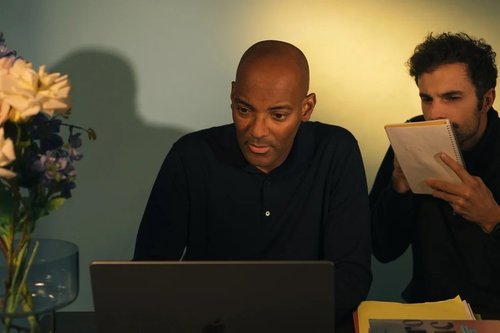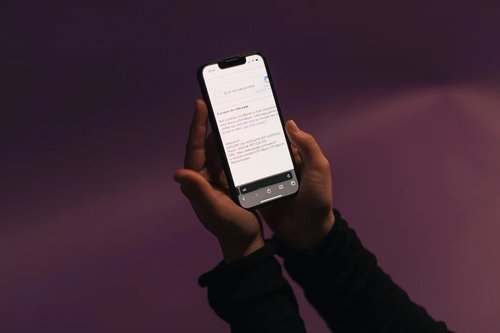How to use ‘deep work’ to optimise your time
Apr 10, 2019
4 mins

Open-plan environments, junk emails, social media… The sheer volume of distractions at the office can make it difficult to concentrate fully at work. So an American professor came up with the theory of “deep work” to help us regain control and stay focused.
Often, undertaking or completing a task that requires effort and focus is overpowered by our desires—eating, sleeping, watching TV, scrolling through Twitter or Instagram—and we end up succumbing to temptation. Increasingly aware that the new generation finds it difficult to develop their ideas, create, and innovate when faced with so many distractions, Cal Newport, a professor at Georgetown University in Washington DC, came up with a way for us to regain control, a method he calls “deep work.” After all, when isolated, disconnected, and focused, the human brain can work wonders.
In fact, it is wrong to assume that the most successful among us are so because of any innate talent. In reality, often they excel at work thanks to their ability to concentrate. In his bestselling book Deep Work: Rules for Focused Success in a Distracted World, Newport reveals how we can learn to avoid becoming distracted by our various digital urges and, in doing so, boost our efficiency.
Divide your work time
Newport recommends alternating between pure work time and “internet slots” and doing everything you can to maintain this separation. “*Using a service that is a source of distraction does not in itself diminish your brain’s ability to focus. Rather, at the slightest sign of boredom or cognitive difficulty, it moves from high value-added activities with little stimuli, to low value-added activities with lots of stimuli,” he says in his book. **“This teaches your mind never to tolerate the absence of anything new.** This constant shift weakens your mental muscles responsible for organizing the many sources vying for your attention. By isolating internet use (and therefore isolating your distractions), you minimize the number of times you give in to distraction. In turn, you strengthen the muscles responsible for selecting what needs your attention.”
Structure your day for optimal efficiency
The second lesson to be learnt is the importance ofestablishing a tight schedule for all your tasks and sticking to it: “At the start of each workday, take a new page in a notebook (with lines) you have designated for this specific purpose. At the beginning of each line, specify a time of the day until you’ve covered all the working hours in your typical day. Now here’s the important part: divide up the hours of the day into slots, to which you assign activities.”
There are several ways you can bring depth to your professional life. In particular, there are four main philosophies that can be adapted to each individual’s working environment and way of operating, with the same result: boosting your efficiency and helping you to achieve more.
1. The monastic philosophy
This means eliminating or drastically reducing all superficial tasks for long, uninterrupted periods of time (months, seasons, quarters).
2. The bimodal philosophy
Without eliminating all distractions from your professional life, make sure you have intervals of “deep work” that last for long enough so that you can devote yourself solely to the effort of thinking before returning to the more mundane pursuits that professional life can involve, such as tweeting and coffee-machine chatter.
3. The rhythmic philosophy
So that you never miss a “deep work” session, make it a habit, get into a rhythm, and dispel any hesitation about seeing it though. A good rhythm to follow could be getting up every morning at 6am and working for two hours in a state of high concentration. The rest of the day can then be dedicated to more superficial tasks.
4. The journalistic philosophy
Journalists work to very tight deadlines—they have to write their articles quickly and at short notice, so they need to be able to activate their “deep work” mode whenever necessary. Therefore, even 30 minutes’ free time between two conferences can be all they need to get things done. But being able to turn the “deep work” mode on and off is a skill that takes time and practice.
What about when you get stuck?
The bold-act technique
The paralyzing fear of writer’s block was felt firsthand by the author J.K. Rowling when she had to submit her manuscript for Harry Potter and the Deathly Hallows to her publishers but was struggling to tie up the plot. To get things moving again and regain her focus, she decided to book a room at the luxurious Balmoral hotel in Edinburgh. It worked—it was at the Balmoral that she finished the book. Thus, Rowling used the bold-act technique: she made a radical change to her environment to put pressure on her brain. She realized that the task at hand was of great importance and sprang into action.
Nurture your idleness!
To optimize your deep-work sessions, it’s also important to be idle! Yes, idleness is not merely a special treat or a vice, it is as important for work as ink is for a printer. Completely detaching yourself from work is beneficial for the brain, as this downtime lets you recharge your batteries so that you can perform better later. To regain optimal concentration and focus, a simple stroll outdoors can be very effective, as can listening to music, going for a run, calling a friend—but make sure you set yourself deadlines. This not only puts your mind at rest, it also forces you to prioritize deep work so that you can complete tasks on time.
From here, it’s up to you!
Photograph by WTTJ
Translated by Matthew Docherty
Follow Welcome to the Jungle on Facebook on LinkedIn and on Instagram and subscribe to our newsletter to get our latest articles every day!

More inspiration: Productivity & tools

Goal setting: How to bounce back when you feel like a failure
The big F word ... Failure. We all face it, but here’s how to make it your secret weapon for success.
Dec 18, 2024

Productivity boost: Why mental health outshines long hours
Long hours don’t equal better work. Discover how mental health support can unlock productivity and time efficiency in the workplace.
Nov 28, 2024

10 fun ways people are using AI at work
While many use AI for basic tasks like grammar checks or voice assistants, others are finding innovative ways to spice up their work days.
Nov 05, 2024

12 Slack habits that drive us crazy
Slack is a top messaging platform, but coworkers can misuse it. Over-tagging and endless messages can make it frustrating ...
Oct 16, 2024

10 CareerTok creators you should be following
Looking for career advice? CareerTok has quick tips from real experts on interviews and job offers.
Sep 25, 2024
The newsletter that does the job
Want to keep up with the latest articles? Twice a week you can receive stories, jobs, and tips in your inbox.

Looking for your next job?
Over 200,000 people have found a job with Welcome to the Jungle.
Explore jobs